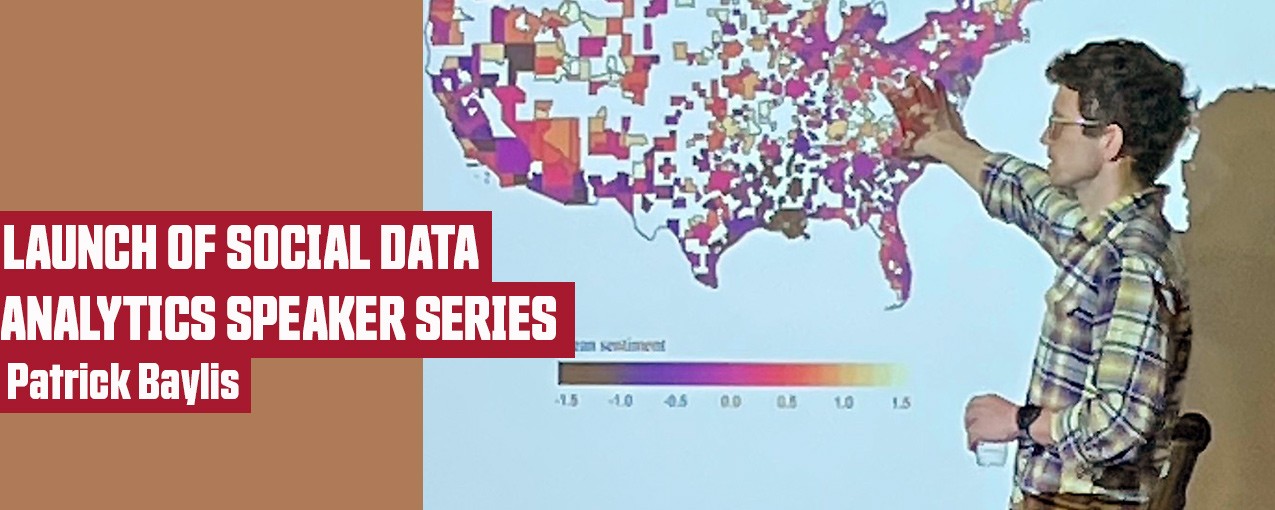- Faculty & Staff
- About
- Departments and programs
- Accelerated Law (SFU-Exeter)
- Anthropology
- Applied Legal Studies
- Cognitive Science
- Criminology
- Economics
- English
- French
- French Cohort Program
- Gender, Sexuality, and Women's Studies
- Gerontology
- Global Asia
- Global Humanities
- Graduate Liberal Studies
- Hellenic Studies
- History
- Indigenous Languages
- Indigenous Studies
- International Studies
- Labour Studies
- Linguistics
- Medical Humanities and Social Sciences
- Philosophy
- Political Science
- Psychology
- Public Policy
- Social Data Analytics
- Sociology
- Urban Studies
- World Languages & Literatures
- Undergraduate
- Graduate
- Alumni
- Research
- Teaching
- News & events
- FASS at Surrey
- Next steps for new students (redirect)
Social Data Analytics
What is the “big data revolution”? How will this data transform the way businesses target consumers? How will it change the way governments make policy decisions?
The Social Data Analytics Minor is the only degree program of its kind in Canada to provide the skills to effectively navigate, analyze, and communicate “big data” in the social science context.
Students learn to collect, analyze, and critically evaluate the large volume of digitized, real-world data derived from and related to human behavior. They will learn to communicate data-driven insights to the public, scholarly community, and policymakers, and they will do so while respecting and upholding the privacy and ethical concerns that have emerged in the big data era.
Everything comes together in the Capstone Project Seminar, where students work in teams to apply their skills to a real-world social or policy problem.
Career Pathways
Social data analytics skills and general data literacy are gaining importance across a wide range of fields. In particular, graduates of social data analytics will gain strong analytical thinking, communication, and project management skills as well as area-specific knowledge and familiarity.
Students will be in a strong position to begin or advance their careers in the public and private sectors or to complete advanced degrees in the arts and social sciences.
“The launch of the new Social Data Analytics (SDA) minor program is an opportunity for students to equip themselves with the skills to pave their own path in the data analytics field. Expertise in data analysis is one of the strongest assets of a young economist. This is the value of the SDA minor in my opinion—in a world economy where data is the most valuable commodity, knowing how to manipulate and analyze data and draw valuable insights from it will only become more important in the future.”



